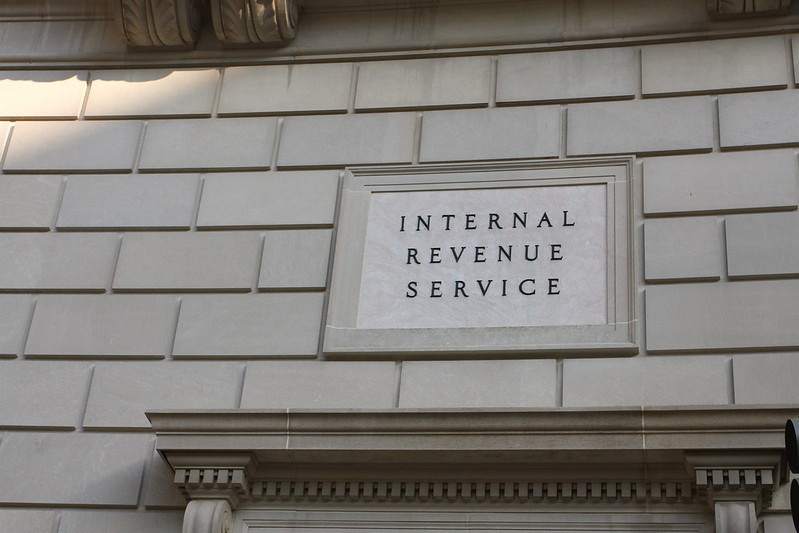Ready to dive into the world of wills, weird family feuds, and “wait—what did you leave me?!” moments? You know that awkward holiday dinner when Aunt Karen brings up Grandma’s secret Will codicil and suddenly everyone’s side-eyeing each other over the cranberry sauce? Yeah, inheritance can turn even the most harmonious fam into a soap opera faster than you can say “probate.” But fear not! We’ve mined the depths of estate-planning horror stories to bring you 13 inheritance mistakes that can wreck family relationships—and trust us, these are the ones you absolutely want to dodge.
1. Procrastinating on Planning

Putting off your estate plan is like ignoring that dentist appointment—you know you should do it, but somehow Netflix always wins. According to Fidelity, many people let years (or decades) slip by without updating their wills or trusts, leaving loved ones scrambling when the inevitable happens. First off, if you die without a will, state law decides who gets your stuff—so Aunt Linda might end up with your half of the antique clock collection even though she thinks “antique” means anything older than her smartphone.
Delaying also means life changes—marriage, divorce, new kids, golden retrievers—aren’t reflected in your plan, creating a perfect storm for disputes. And if you think “I’m not rich enough to need a plan,” think again: assets like your house, 401(k), or that vintage Beanie Baby collection all go through probate, which can be expensive, public, and painfully slow. Your family will thank you for sparing them the guessing game and legal fees. Plus, early planning gives you the fun of customizing gifts while you’re still here—imagine the look on your kid’s face when you hand over their dream car with a grin. Trust us, planning ahead is the ultimate mic drop for family harmony.
2. Keeping Your Plan a Secret

You might think your Will is your business, but in inheritance land, silence breeds suspicion. In the case of Olivia’s family feud, her grandfather’s unequal bequests—where one child got way more than the others—sparked a rift so deep it took years to heal (and cost a small fortune in legal fees). As reported in The Times, nearly half of grandparents admit they’d never discussed their distribution plans before death, leaving heirs feeling blindsided and betrayed.
Keeping your wishes under wraps might preserve the surprise—until the envelope is opened and Uncle Joe storms out of the room. A simple family meeting (or even a casual coffee chat) where you explain your decisions can defuse most of the drama. Lay out why you chose to leave more to the kid who cared for you in your final years, or why you gifted the beach house to the DIY wizard in the family. Transparency doesn’t guarantee smiles all around, but it’s infinitely better than guessing games and court summons.
3. Skipping Key Documents

You wouldn’t bake a cake without flour—so why draft an estate plan without the essential paperwork? Leaving out documents like a durable power of attorney or advance health care directive can leave your loved ones legally powerless when you need them most. Kiplinger warns that missing these critical forms often forces families into court battles just to make medical or financial decisions on your behalf, which is about as fun as jury duty.
Imagine your spouse unable to pay the mortgage because the bank freezes your joint account, or your adult kids fighting over whether to keep you on life support—all because you thought a single sheet of paper was “too much paperwork.” By laying out who makes decisions if you’re incapacitated, you spare everyone that awkward “who’s in charge?” moment. And hey, filling these out now means less stress later—just two signatures and you’re golden.
4. Failing to Name Contingent Beneficiaries

Life is full of plot twists—divorce, unexpected deaths, even newly discovered secret children—so naming backup beneficiaries is non-negotiable. If your primary beneficiary predeceases you and you haven’t listed a contingent, your assets can end up stuck in probate or, worse, go to someone you’d never chosen. According to AARP, about 20% of retirement accounts have no contingent beneficiaries, creating a financial Bermuda Triangle for your loved ones.
When Aunt Jessie forgets to add her daughter from her second marriage as a backup, her entire retirement fund defaulted to her ex-husband—yikes. Always list at least one secondary recipient on every account, from IRAs to life insurance policies. It only takes a minute online or a quick chat with your financial institution, but it can save your chosen heirs from nasty surprises and probate hell.
5. Not Updating After Major Life Changes

“Set it and forget it” only works for microwave popcorn—not estate plans. Life events like marriages, divorces, births, or big moves should trigger an immediate update to your documents—otherwise, you risk leaving an ex-spouse in charge or disinheriting a newborn. Forbes reminds us that failing to revise your plan after key milestones is one of the fastest ways to create unintended beneficiaries and family blow-ups.
Picture this: you drafted your Will in 2010, then divorced in 2012, remarried in 2015, and welcomed twins in 2018—but never updated the paperwork. Your 2010 Will still names your college roommate as executor (who now lives in Timbuktu) and leaves everything to your first spouse. Avoid this mess by scheduling a quick review every few years or whenever something big happens. Your future self—and your family brunch—will be infinitely more peaceful for it.
6. DIYing Your Estate Plan

Sure, DIY projects are all the rage, but estate planning isn’t the place for Pinterest-inspired shortcuts. Free online templates and twist-ties might save a few bucks now, but they can introduce loopholes, outdated clauses, or state-law conflicts that only show up when probate papers are filed. Professional estate planners know the fine print—like the difference between revocable and irrevocable trusts—that can mean the difference between seamless wealth transfer and a courtroom thriller.
Ever hear of the millionaire who used a generic Will form, only to discover it neglected to cover digital assets? His heirs spent six months wrestling with Facebook and crypto accounts before cracking backup passwords. When you work with an attorney, you get customized advice, state-specific language, and peace of mind that “one-size-fits-all” won’t unravel your legacy. Yes, it costs more up front—but it’s a small price to spare your loved ones a legal circus later.
7. Overlooking Digital Assets

Your estate isn’t just physical property anymore—it’s also your online world. From cryptocurrency wallets to Instagram accounts, digital assets can carry real value or sentimental weight. Failing to catalog and pass on login info and digital-inheritance wishes can leave heirs locked out of important accounts or even facing extortion demands to unlock treasured memories.
Create a secure, encrypted list of all digital assets—usernames, passwords, account URLs—and specify whether you want accounts deleted or memorialized. Many platforms now offer “legacy contact” settings (looking at you, Facebook), so take advantage of those tools. A little digital housekeeping now prevents future battles over pixelated photo albums and Bitcoin fortunes.
8. Ignoring Tax Implications

Taxes aren’t the fun part, but they’re the one your heirs will notice—especially if hefty estate or inheritance taxes nibble at their windfall. Depending on where you live, transfers above a certain threshold can trigger federal estate taxes (up to 40%) or state-level levies that vary wildly. No one wants to see Uncle Sam grab a slice of Grandma’s charity fund because no planning was done.
Explore strategies like gifting during your lifetime, setting up irrevocable trusts, or leveraging the annual gift-tax exclusion to reduce your taxable estate. Consulting a tax-savvy advisor can uncover credits or exclusions you didn’t know existed. With a little foresight, you can minimize the tax hit and maximize what your heirs actually receive—no surprise tax bill required.
9. Picking the Wrong Executor or Trustee

Choosing an executor or trustee is like selecting a wedding officiant—you need someone trustworthy, organized, and (ideally) not a hot mess. If you name a petulant teenager or an estranged cousin as executor, your estate could stagnate in probate limbo for years. The last thing your family needs is another high-drama performance after the main event.
Consider a neutral third party—like a bank trust officer or a professional fiduciary—if family drama is already in the air. At minimum, pick someone who understands financial basics, communicates clearly, and isn’t prone to holding grudges. Your estate is a marathon, not a sprint, so ensure your executor has the stamina and temperament to finish the race without turning it into reality TV.
10. Forgetting to Fund Trusts

Setting up a trust is step one—funding it is step two; skip that and your “trust” is just a fancy envelope. Unfunded trusts leave assets in your name, exposing them to probate and creditors, exactly what you were trying to avoid. It’s estate-planning lip service: “I love you, family,” followed by “here’s what I actually did” (nothing).
After creating a trust, retitle bank accounts, real estate deeds, and investment accounts in the trust’s name. Double-check that life insurance policies list the trust as beneficiary. If you don’t, your assets revert to probate court—think reruns of legal paperwork, not smooth transitions.
11. Letting Emotions Rule

Inheritance isn’t just math; it’s emotions. Guilt, favoritism, and family history can skew your decisions—leaving one child the family business “because they need it more,” while another gets a polite pat on the back. Without clear reasoning, heirs will read motives into your choices and resent perceived slights.
Write a letter of explanation or hold a family meeting to walk through your rationale. Explain why you left the beach house to the sibling who’s always been there to mow your lawn, or why you set up a special-needs trust instead of an equal cash gift. Context softens the blow and transforms your plan from a mystery novel into a transparent conversation.
12. Overlooking Special Needs and Blended Families

Modern families come in all shapes and sizes—blended families, stepkids, special-needs dependents. Treating everyone “equally” on paper can actually cause heartbreak: leaving assets outright to a disabled child could jeopardize their government benefits, while ignoring stepchildren can ignite feelings of abandonment.
Work with a planner to set up specialized trusts—like supplemental needs trusts—that protect benefits and provide for unique circumstances. Clearly outline who gets what and why, factoring in every branch of the family tree. A thoughtful plan respects individual needs and prevents bitter “you forgot me!” texts at the reading of the Will.
13. Neglecting Funeral and Healthcare Wishes

Your legacy isn’t just financial—it’s also how you exit the stage. Failing to specify medical directives or funeral preferences burdens loved ones with guesswork at an emotional low. Do you want a simple cremation, a green burial, or that blowout funeral with the jazz band? Clear instructions spare your family split-second decisions while grief clouds their judgment.
Include a Health Care Proxy and advance directives in your estate packet, and jot down funeral desires (flowers, music, venue). Discuss these wishes out loud if you can—it’s awkward, but infinitely better than the “I thought YOU handled it” blame game when the safe deposit box opens.
This article is for informational purposes only and should not be construed as financial advice. Consult a financial professional before making investment or other financial decisions. The author and publisher make no warranties of any kind.








